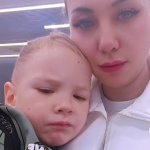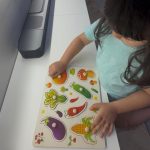Depression in Autism: How Serious Is the Problem?
Autism, as a neurodevelopmental disorder, is characterized by a lack of communication, difficulty understanding non-verbal signals, underdeveloped cognitive skills, avoidance of socialization, a strict adherence to daily routines, and heightened sensitivity to changes in those routines.
Autistic individuals often experience anxiety, depression, mood swings, and are prone to stress and phobias. Depression episodes in children, in particular, stem from their inability to explain their desires, needs, or aspirations to others. Many children find it difficult to describe their unique challenges, which can lead to the development of depression. As a result, they may retreat to their rooms and refuse to leave, or become aggressive, including self-directed aggression.
Mood disorders are widespread in children with developmental disorders and can persist into adulthood. Since many autistic individuals have limited or no communication skills, they are unable to describe their feelings. However, depression can be recognized through indirect symptoms, such as a loss of appetite, insomnia or excessive sleep, apathy, and a lack of interest in activities. In severe cases, suicidal tendencies may develop.
Recognizing Depression: Signs and Symptoms
For parents, it is crucial to pay attention to changes in their child’s behavior. The main signs of depression are often:
- Persistent sadness or detachment
- A lack of interest in previously enjoyable activities
- Feelings of guilt or hopelessness These symptoms require immediate psychological intervention.
Treatment for Depression in Autism
Treatment for depression can involve a combination of medical and psychological approaches. Medical treatment may include medication, particularly for sleep issues. Psychological interventions, alongside various therapy forms, are effective in addressing depression and anxiety. Creative therapies, such as music therapy and art therapy, help improve social and communication skills. Applied Behavior Analysis (ABA) therapy also plays a key role in treating depression and anxiety in autistic individuals.
However, the limitation of traditional methods is that they often focus on managing the consequences of the disorder rather than addressing the underlying cause — autism itself.
Cell Therapy: A Promising Approach
Cell therapy is a new, innovative approach aimed at directly addressing the root cause of autism. It is a natural, reliable, and safe treatment that stimulates the body’s self-healing mechanisms. This method involves the transplantation of the patient’s own stem cells, which avoids rejection by the immune system.
The unique feature of stem cells is that they can transform into any type of cell needed by the body. After transplantation, stem cells replace damaged cells in the brain and nervous system, resulting in the normalization of brain function. This leads to improvements in behavior, a reduction or elimination of symptoms, enhanced cognitive abilities, and accelerated development. The results are often long-lasting, sometimes permanent, which reduces the need for repeated treatments and enhances the effectiveness of other autism-related therapies.
Cell therapy has proven benefits and is widely recognized as an advanced treatment for autism. This method is already being used by leading medical centers around the world, including the Mardaleishvili Medical Center. Their team of highly qualified professionals has extensive experience with stem cell transplants and uses state-of-the-art equipment to achieve the most positive therapeutic outcomes. Financially, the services offered by this center are more affordable than in many countries with advanced healthcare systems, and they also provide assistance with travel and accommodations.
Cell therapy is the most advanced method for treating autism!
Autism Treatment Center Videos
Autism treatment with own stem cells
Cord blood association congress
International Quality Crown
Autism Treatment Reviews
Autism treatment with own stem cells
The story of Alessandro (6 years old)
Autism Patient Testimonial - Stem Cell Treatment
Clients Testimonials

Lidiya — Elina’s mother Read More

Anna – Sasha’s mother Read More

Amirkhon’s father — Tokhir Read More

Dilana’s mother Read More

Irina and Stefan – Ilya’s parents Read More












